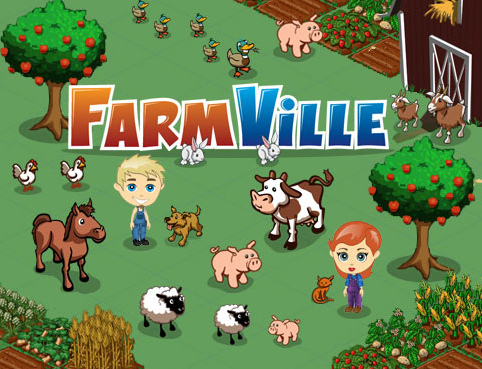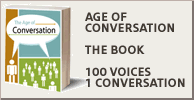
Paul Graham's piece on Yahoo's demise is a must read for anyone looking for answers to the fail from grace of a once iconic brand.
Graham's rationale for Yahoo's failure is put down essentially one thing; its lack of a "Hacker Culture". It didn't have brilliant engineers at the heart and soul of its organization and it tried to make do without keeping and attracting the best.
Interestingly, this is the opposite of Facebook and perhaps, one can argue, the very reason for its success.
Back in October of 2009, Y-Combinator invited Zuckerberg to speak at its Start-Up School and he was asked the question about keeping and attracting talent.
This was his response.
"Our goal isn’t necessarily to keep people forever. There are companies that train people really well. A lot of Harvard people went on to McKinsey. A lot of people went to IBM because that was the best place to learn sales. A lot of people go to USC to learn how to play football. One of the things at Facebook is have a place where it’s one of the best places to learn how to build stuff. If you want to learn how to build really good products and practices and have a large impact, I would argue there’s no better place to do that than at Facebook.
If people want to come here for one, two, or three years. Steve Chen, who founded YouTube, was working on Facebook before. I’m not encouraging people to work at Facebook to leave. But I think you learn valuable skills. We’re not pretending we’re building a company that hackers are going to want to work at forever. I want to be a part of building some institutions to be great hacker institutions in the long-term."
Zuckerberg is making two things clear from this statement.
1. He wants to hire hackers
2. His promise to to his talent is clear, it's simply the best place to learn how to build stuff. If you are an engineer, what more could you ask for?
There's much more to this than meets the eye; it's the philosophy of "Hacker Culture" that not only applies to the stuff you build, but how you approach business overall.
You kind of want "hackers" everywhere, because they are never satisfied with the status-quo and always looking to improve and better things. They never sit still and they constantly making the future.
While it's easy to see why "Hacker Cultures" scare most of corporate America, but it seems like the thing that a number of companies need more of right now.
An interesting exercise could be to define and codify the hacker skills set, so it would make sense for non-engineering types.
The reality is every company one day in the very near future will need an army of internal hacker engineers.
The difference is, these won't be the "digital cowboys" in the back office, they will be running the show.

Mark Pincus, the founder of Zynga, recently announced to The Daily Telegraph that he wants Zynga to become a verb.
"I want people to ‘Zynga’ each other and for the word to become completely aligned with gaming."
This is quite a big shift from where he's been and where gaming has been traditionally. Like record labels, gaming brands have had a tough time trying to create strong parent brands, only Rockstar and EA have managed to do it.
It's likely that many of the million of Farmville players don't even know Zynga is behind the game and even if they do, they aren't likely to substitute Zynga for Farmville anytime soon.
It's also somewhat arrogant to believe that Zynga will eclipse all other gaming brands in other categories and seems unlikely that the brand will dominate the social gaming sphere for ever.
However, stranger things have happened and maybe Pincus is planning an advertising onslaught with a global television campaign supported by online takeovers, spectacular billboards and events. Who knows? But Zynga's going to have to do something radical, if it wants that verb status.
Posted by Ed Cotton
The Social Network will likely emerge together with Inception as a contender for movie of the year. While the later uses fantasy to take us to a future world that's built from an understanding of present realities, The Social Network is very much about "the now" and the changes we've seen going around us over the last five years.
While Aaron Sorkin and David Fincher explore many themes in the film- one that's central to the film is the difference between those who make and create and those who merely have ideas. It's been said multiple times that ideas are the easy things, and that execution is the tough part, this movie is very much about that.
Zuckerberg may suffer from limited social skills and again, that's another big theme of the movie, a guy who can't socialize, setting up the ultimate social tool, but he makes up for it with an incredible ability to build.
The movie shows the dramatic socio-cultural shift, that's been described by many historians as the move away from industrial production and into knowledge work, but there are many movies have gone there in some way, usually negatively by showing the de-humanization of the cubicle worker. Sorkin and Fincher show us something else all together; the new being, the supreme knowledge worker, who isn't the boss of old who commands a legion of white shirts and has power merely because of his experience, but someone who's there because of their skill.
Meritocracy is the force that flattens everything and in the case of The Social Network, it smashes and pushes aside the supposed power of venerable institutions, like Harvard.
We are now going through a moment of time that just simply doesn't conform to the past. Business always required ideas, but they were often based on assembling the right combination of people and things to do something new. It took time to grow and scale and needed lots of capital and people to do anything significant.
It's a new world when someone can take an idea, even if it did come from someone else, and bring it to life using their brainpower. We've always regarded the object as a totem with the most emotional power, but the movie shows it's possible to make something in the digital world that can play with our core emotions in an even more powerful way than any physical object.
To bring an idea to market and achieve success has always been dependent on a unique combination of factors and this hasn't changed.
What's very different now is that it's really possible for someone who has the right skills, to change the world from their bedroom. The shift is significant because it means the power base has shifted to those who not just imagine the future, but importantly, build it themselves.
Posted by Ed Cotton
1. Target demonstrates relevance
The Facebook association shows that the retailer gets where the world is heading and understands the power of the brand.
2. Facebook emerges from the shadows of the virtual world
A brand that's know for its web presence suddenly becomes physical with cards and a presence in a physical world.
3. Facebook gets mass coverage
Although the brand is already huge, this initiative gives the brand thousands of points of physical contact which can take it to a whole new level.
4. Virtual games get instant credibility
Facebook's partners Zynga and others are huge- this access points makes social games more credible.
5. Facebook makes its first big move into e-commerce
The association with Target and the presence in the gift card space is a stepping-stone to a bigger play in the e-commerce space for Facebook, virtual gaming is the obvious start point.
Posted by Ed Cotton
Poole is attracting interest from investors, TED conference organizers and Facebook employees who flocked to a recent talk he gave on their campus.
"Visited mostly by young men in their late teens and early 20s, 4chan is loosely organized by topics of interest--music, games, TV, animation (Japanese and otherwise). But nearly half its messages are posted in a single random-topics section known as /b/, and /b/'s anarchy sets the tone for the site in general. It's out of /b/ that swarms of gleeful online troublemakers--trolls, in Internet parlance--occasionally issue forth to prank, hack, harass, and otherwise digitally provoke other online communities and users. From /b/, as well, the Internet at large absorbs a steady stream of catchphrases and sight gags--LOLcats, rickrolling, and other ubiquitous Internet memes that seep up from the endless, dizzying churn of /b/'s vast reservoir of inside jokes. Often intended to shock, shot through with racism, misogyny, and other qualities deliberately chosen from beyond the contemporary pale, the words and images of /b/ have become an online spectacle: "Lunatic, juvenile ... brilliant, ridiculous and alarming," the Guardian newspaper's website once called it. "The id of the Internet,"...."
I guess a trip inside the world of 4chan is a journey that has to be made by any planner serious about understanding the mind of young males today.
Posted by Ed Cotton
They launched a product that because it's on Facebook, will be huge, but it's nothing that Foursquare and Gowalla haven't done before, but importantly that didn't over-promise- they talked about slow global roll out and not attacking things like turning TV shows into places or trying to instantly monetize the product.
Importantly, the journalists seemed in awe of the Facebook team, hanging on ever word and enjoying the various rituals and icons like the gong banging session and the wooden launch switch. There were other "bells and whistles" for them to enjoy like this real-time view of check-ins.
Zuckerberg has been in the firing line for his inability to cope with tough media situations, but yesterday in his own environment- he was calm, collected and confident. It was so refreshing to see a corporate team just being themselves and not pandering to what was probably a massive worldwide audience.
This was a lesson to the rest of corporate America that there's a generation out there who don't want to play by the rules and don't want to hide behind titles and the false entity of the corporation.
Posted by Ed Cotton
